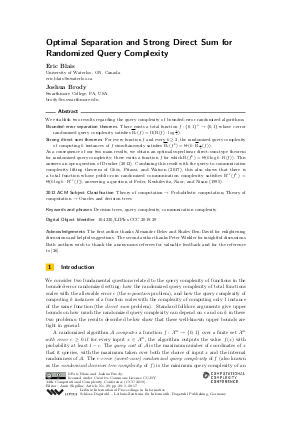LIPIcs.CCC.2019.29.pdf
- Filesize: 0.52 MB
- 17 pages

 Creative Commons Attribution 3.0 Unported license
Creative Commons Attribution 3.0 Unported license















Feedback for Dagstuhl Publishing